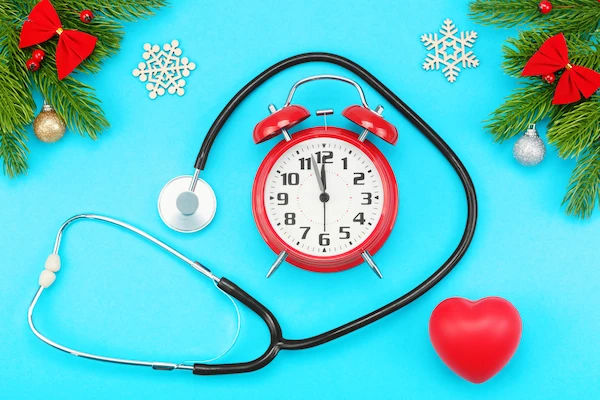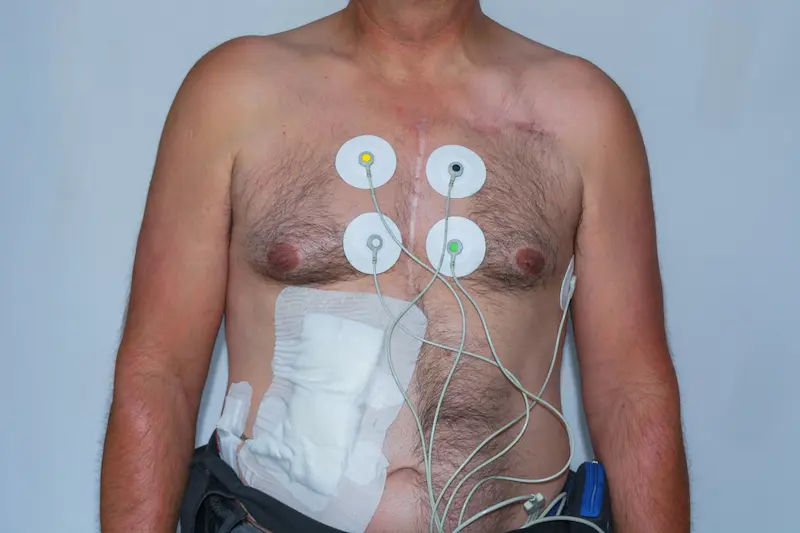- Male
- 24 Years
- 22/01/2025
I'm feeling pretty worried after getting my recent full body check-up results. The echo report showed something unusual, and I'm not sure what to make of it. Sometimes I get really anxious, and when I was getting the echo done, my heartbeat was racing at about 110 to 120 beats per minute because I was so scared. Could you take a look at my echo report and tell me what steps I should take next or if everything seems okay? The report mentions Mild MR and TR PASP at 32 mm Hg and LVEF at 65, but everything else seems normal. What should I do?
Answered by 1 Apollo Doctors
In your echo report, it mentions that you have mild mitral regurgitation (MR) and tricuspid regurgitation (TR) with a pulmonary artery systolic pressure (PASP) of 32 mmHg. Your left ventricular ejection fraction (LVEF) is 65%, which is within the normal range. Based on the information provided, everything seems to be normal except for the mild MR and TR. Given your symptoms of feeling anxious and experiencing an elevated heart rate during the echo, it is important to address your anxiety. To manage anxiety and potentially reduce the impact on your heart rate, you can consider taking medication such as Propranolol. The usual dosage for anxiety is 20-40mg three to four times daily. It is also advisable to follow up with your healthcare provider to discuss the findings of your echo report and to determine if any further evaluation or treatment is necessary. Regular follow-ups and monitoring may be recommended to ensure your heart health is maintained.
Dr. Ranjith Suggests...
Consult a Cardiologist
Answered 04/07/2025
0
0

More Cardiology Health Queries
View allI've been taking Concor Cor 2.5mg for my blood pressure, but it makes my pulse drop below 60. I've started taking half a tablet because of that. Is it okay to switch to Concor Cor 1.25mg instead of splitting the 2.5mg pill?
No donot use it in such a way without doctors advice,visit your doctor for appropriate management
Answered by 1 Apollo Doctors
I'm really worried about my mother-in-law's ECho report because it mentions Grade 1 LV diastolic dysfunction. Is this something we should be concerned about? The ECG looks normal, thankfully. Could you help me understand if everything's alright?
Visit your Physician for appropriate management
Answered by 1 Apollo Doctors
I've been dealing with blood pressure issues for about a year now. Initially, I was on S Numlo, but I had to stop because it caused swelling in my legs. Then, I switched to Eritel 40 mg for a few months, and now I've been taking Eritel 20 mg for the past couple of months. My main concern is that I've been gaining weight since my blood pressure diagnosis, and I'm worried it might be because of the Eritel tablets. Do you think the medication could be causing the weight gain?
Weight gain is a common side effect of certain blood pressure medications, including Eritel (Metoprolol); consider discussing alternative medications or adjusting your dosage with your doctor, and in the meantime, focus on a healthy lifestyle, including a balanced diet, regular exercise (aiming for 150 minutesweek), and stress management techniques to help manage weight and blood pressure.
Answered by 1 Apollo Doctors
Disclaimer: Answers on Apollo 247 are not intended to replace your doctor advice. Always seek help of a professional doctor in case of an medical emergency or ailment.




